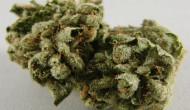Alcohol Drug Addiction

According to Dr. Collins, drug and/or alcohol abuse can be classified by the circumstances that first lead addiction, including: * Alcohol abuse at a young age. Alcohol abuse usually falls into one of two groups: those who begin drinking at an early age and those who start later in life. Early stage drinkers usually start drinking around 12 and continue to increase their consumption of alcohol into their teenage years. Early stage drinkers are usually full-blown alcoholics by the time they turn 18-20 years of age. Early stage drinkers usually have unreliable social networks, remedial coping skills, and sometimes, attention-deficit disorders. Boys will become alcoholics at such a young age more often than females will. * Alcohol abuse at an older age. People who begin drinking later in life will often become addicted because of personal stress in their lives, such as continuing unemployment or a divorce. This type of drinker will use alcohol as a sedative, to numb negative feelings. Older drinkers do not use alcohol to party; they drink to calm the brain down and get to sleep. * Recreational drug abuse. Drug addiction is not classified by age as alcohol addiction is. For example, people who use methamphetamines, heroin, cocaine, or prescription drugs are what Collins refers to as the “pure recreational group” — people who begin taking drugs because they think it will be fun or exciting. People who fall in this group are usually younger, and the addiction stems from the use of drugs like marijuana. “These types of users become heavy recreational users at an early age,” Collins says. “It can progress pretty far, pretty fast, into non-pharmaceutical opiates, primarily heroin.” * Painkiller dependency. Last but not least, the other group of addicts is made up of people who first become dependent on opiate prescription drugs taken to address pain. This type of addict appears to be functioning normally until they are forced to manage on pain meds. When this type of addict uses prescription drugs over a long period of time, they often develop a physical tolerance and the prescribed doses become less and less effective, leading users to constantly increase the dosage levels. Over time, the brain will begin sending false pain signals to encourage the continued use of more pain meds. By abusing painkillers, “you’re training your brain to send a distress signal, so it can get a reward,” Collins says.
Beau Mason is the Program Director of Hacienda La Mision, which is a Mexico based Ibogaine medical center; specializing in addiction treatment of all types. Hacienda La Mision is the world’s leader in Ibogaine treatment and patient care. For more information please visit http://www.treataddictionright.com/ & http://www.ibogaineintervention.com/.












